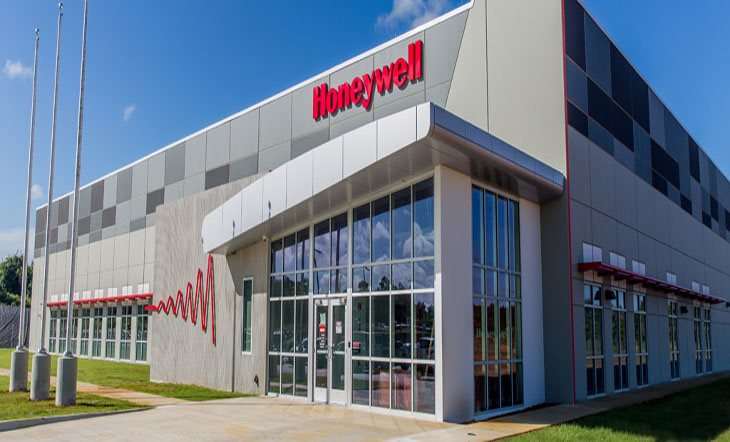£1.8 Billion Acquisition: Honeywell And Johnson Matthey In Final Stages

Table of Contents
Deal Details and Key Terms
Acquisition Value and Scope
Honeywell's proposed £1.8 billion purchase encompasses Johnson Matthey's entire catalysts technologies business. This includes a substantial portfolio of technologies crucial for emission control in various sectors, encompassing automotive, aerospace, and chemical applications. The deal is structured primarily as a cash transaction, though the precise breakdown of payment structures may still be subject to minor adjustments before finalization. This significant investment highlights Honeywell's commitment to expanding its presence in the high-growth catalysts market.
Regulatory Approvals and Timeline
The successful completion of this £1.8 billion acquisition hinges on securing several regulatory approvals. The timeline for finalization is dependent on overcoming these hurdles. Key milestones include:
- Antitrust approvals: Securing clearance from competition authorities in major jurisdictions like the European Union (EU) and the United States (US) is paramount. Thorough reviews are underway to assess the deal's potential impact on market competition.
- Shareholder votes: Both Honeywell and Johnson Matthey shareholders need to approve the deal through formal voting processes. This typically involves shareholder meetings and the attainment of a requisite majority vote.
- Other regulatory hurdles: Depending on the specific jurisdictions involved, further regulatory reviews and approvals may be needed, possibly concerning environmental regulations or other industry-specific compliance requirements. These approvals can sometimes introduce unexpected delays.
Securing all necessary approvals is expected to take several more weeks, with a target closing date yet to be officially confirmed.
Strategic Rationale for Honeywell
Honeywell's acquisition of Johnson Matthey's catalysts business is driven by several key strategic objectives:
- Expanding market share: This acquisition provides Honeywell with a significant boost in market share within the lucrative catalysts sector, instantly establishing it as a major player.
- Access to advanced technologies: Johnson Matthey possesses cutting-edge catalyst technologies, particularly in the area of precious metal catalysts. Acquiring this expertise strengthens Honeywell's technological capabilities significantly.
- Synergies and cost savings: Combining operations and leveraging economies of scale will likely result in substantial cost savings and operational efficiencies for Honeywell.
- Portfolio diversification: Integrating Johnson Matthey's catalysts business adds valuable diversification to Honeywell's existing portfolio, reducing reliance on any single sector and creating a more resilient business model.
Impact on Honeywell and Johnson Matthey
Honeywell's Expected Gains
The acquisition is projected to yield substantial benefits for Honeywell. Analysts predict significant increases in revenue streams, driven by the addition of Johnson Matthey's established customer base and product portfolio. Furthermore, the deal positions Honeywell to capture a greater share of the expanding market for cleaner technologies. The incorporation of Johnson Matthey's advanced technologies is expected to enhance Honeywell's competitive edge, leading to improved profitability and market dominance.
Johnson Matthey's Future Strategy
For Johnson Matthey, this divestiture represents a strategic refocusing. The proceeds from the sale will allow the company to reinvest in its remaining business units, particularly those focused on sustainable technologies and other high-growth areas. This strategic shift will allow Johnson Matthey to concentrate resources on core competencies and pursue new opportunities in line with its long-term vision.
Impact on Employees
While the acquisition is undeniably positive for both companies strategically, the impact on employees requires careful consideration. Honeywell has indicated its commitment to a smooth integration process and has assured employees that job security is a priority. However, some restructuring is anticipated, possibly impacting specific roles and locations. Clear and transparent communication throughout the integration process will be crucial to minimize disruption and maintain employee morale.
Market Analysis and Implications
Competitive Landscape
This £1.8 billion acquisition significantly alters the competitive landscape of the catalysts market. Honeywell's newly expanded market share positions it as a dominant force, surpassing some key competitors. Existing players will need to adapt their strategies to compete effectively against this strengthened entity. The acquisition could spur increased innovation and consolidation within the industry as competitors seek to maintain their position.
Industry Trends and Future Outlook
The catalysts market is witnessing robust growth, fueled by increasingly stringent emission regulations worldwide. The demand for cleaner technologies in the automotive, aerospace, and chemical sectors is driving innovation and creating opportunities for companies with advanced catalyst technologies. This acquisition positions both Honeywell and (through its refocused strategy) Johnson Matthey to capitalize on these trends.
Investor Sentiment and Stock Performance
The market's reaction to the announced acquisition has been largely positive, reflecting investor confidence in the strategic rationale behind the deal. While initial stock price movements may have fluctuated, the overall trend indicates positive investor sentiment. Further analysis of financial reports and market commentary will be needed to fully assess the long-term impact on shareholder value.
Conclusion
The £1.8 billion Honeywell-Johnson Matthey acquisition represents a pivotal moment in the catalysts industry. This transformative deal promises significant benefits for both companies, reshaping the competitive landscape and accelerating innovation in cleaner technologies. The acquisition's success will hinge on successful regulatory approvals, a smooth integration process, and the ability of both entities to adapt and capitalize on emerging market trends. Stay tuned for updates on this major £1.8 billion acquisition, follow the Honeywell-Johnson Matthey deal closely, and learn more about this transformative £1.8 billion merger by following relevant news sources and official company statements.

Featured Posts
-
 Couple Fights Over Joe Jonas His Response Is Hilarious
May 23, 2025
Couple Fights Over Joe Jonas His Response Is Hilarious
May 23, 2025 -
 Actualizacion Del Coe Niveles De Alerta En Republica Dominicana
May 23, 2025
Actualizacion Del Coe Niveles De Alerta En Republica Dominicana
May 23, 2025 -
 Sam Cooks England Debut One Off Test Against Zimbabwe
May 23, 2025
Sam Cooks England Debut One Off Test Against Zimbabwe
May 23, 2025 -
 Vanja Mijatovic Promena Imena Detalji I Reakcije
May 23, 2025
Vanja Mijatovic Promena Imena Detalji I Reakcije
May 23, 2025 -
 Sistema Frontal Y Vaguada Provocaran Precipitaciones Este Sabado
May 23, 2025
Sistema Frontal Y Vaguada Provocaran Precipitaciones Este Sabado
May 23, 2025
